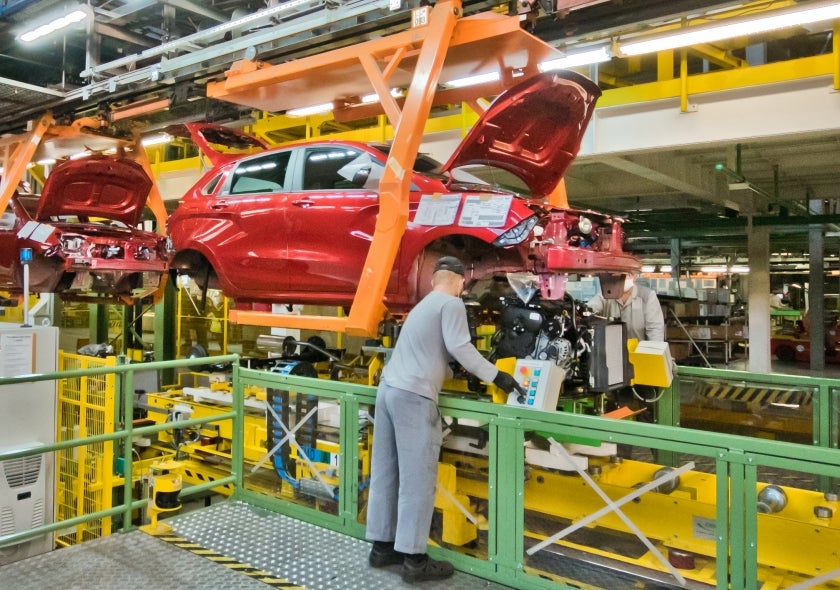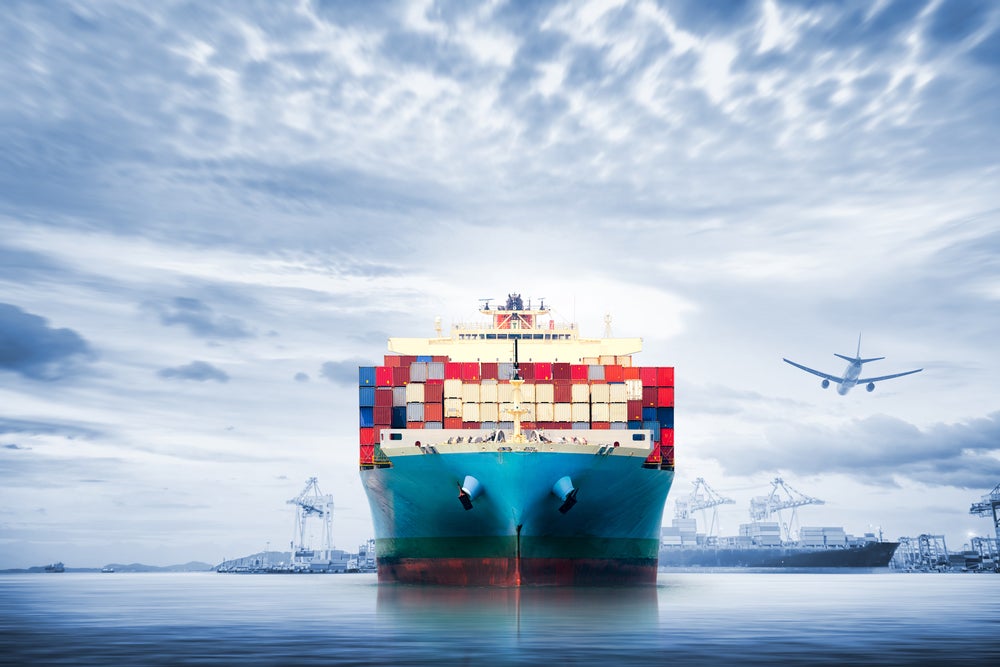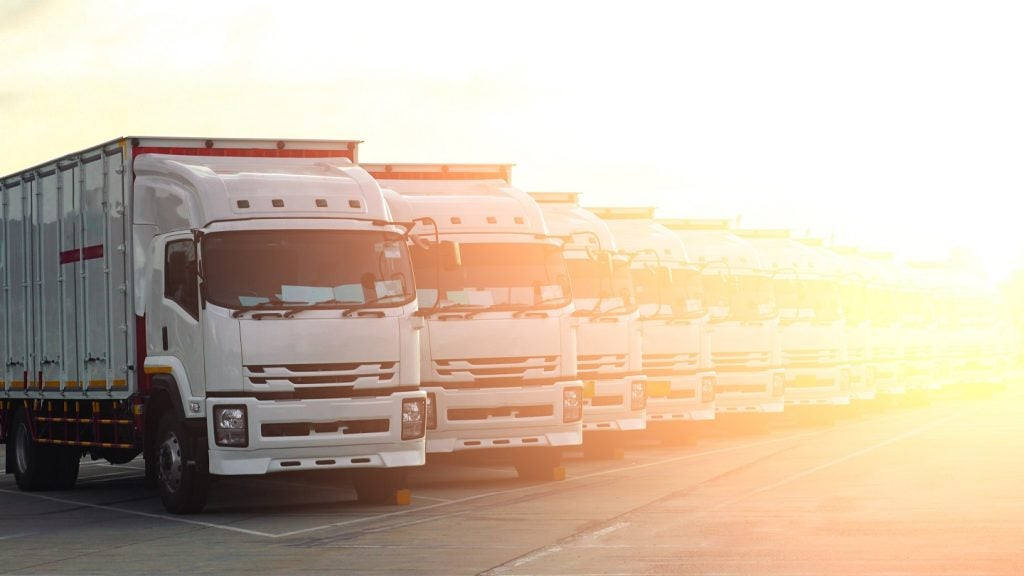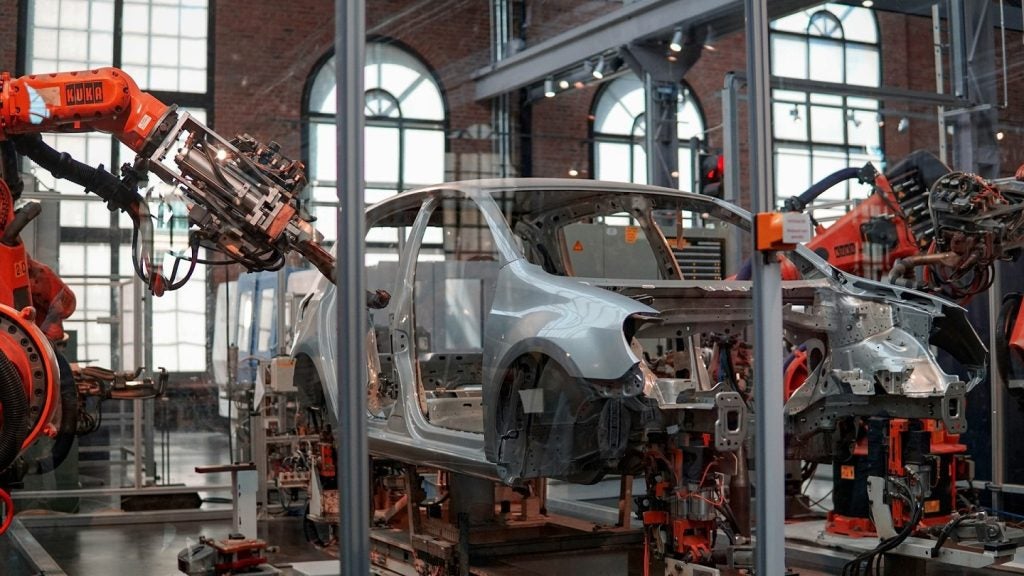
Which automakers are most exposed to Russia-Ukraine crisis? We updated our look at vehicle makers’ exposure to the deepening crisis. Automotive players around the world have responded to Russian aggression with condemnation and actions that will isolate the country further. OEMs including Volvo Cars, Toyota, Ford, Jaguar-Land Rover, General Motors, BMW, Daimler Trucks, AB Volvo Trucks and motorcycle maker Harley Davidson have all ceased export operations to Russia, with Ford confirming that it had suspended its Ford-Sollers Russian joint venture effective immediately in response to the invasion. These announcements were made within the space of just a few days so it’s likely that even more international automakers and suppliers may opt to abandon their Russia operations as momentum builds against the country.
The crisis in Ukraine looks set to severely jolt automotive supply lines in Europe, with the real possibility that a permanent reset will be required. While first and foremost a humanitarian crisis, the Russian invasion of Ukraine risks adding materially to existing economic and supply challenges for the global economy, just as the world was emerging from the shadow of the COVID pandemic. Once again automotive supply chains have shown their fragility. Ukraine, long seen as a relatively safe place for FDI, is no longer seen as such. We’re already seeing immediate impacts on parts supplies to factories in Western Europe. For example: Leoni Wiring Systems is a major manufacturing enterprise in the Lviv region (Stryi) of western Ukraine, directly employing over 7,000 workers. Western Ukraine was attractive as a location for making wiring harnesses or cable assemblies because of the relatively high quality and low cost of the local workforce (it is a labour intensive activity) as well as good transport links to manufacturing plants in Germany. Leoni has other wiring harness factories across Europe and in North African countries. Cable assemblies from Ukraine are sent to Leoni plants across Europe for eventual supply to OEMs such as Opel, Porsche, Volkswagen, Audi and Lamborghini. The wiring harness products are often specified to order for particular vehicle platforms and models, with very limited inventory held. When supply from Ukraine was disrupted in late February the impact on vehicle manufacturers was immediate. Wiring harnesses are relatively complex components, so production cannot be rearranged at short notice or easily substituted. The German OEMs, in particular, have been and will continue to be impacted by supply disruption from Ukraine – though Leoni will likely be working hard on developing alternative capacity sources (such as plants in Tunisia).
Russia’s largest vehicle maker, AvtoVAZ, maker of Lada branded cars, planned to suspend production at its Russian plants this week. Media reports said it would stop its Togliatti and Izhevsk plants on Saturday and from March 9 to 11. The company was reportedly struggling with shortages of electronic components. Shortages of components and supply chain disruption are also hitting automotive companies more widely in Europe reflecting the industry’s long, complex and interconnected supply chains. Analysts say supply chain specialists in Europe’s auto industry will be busy assessing the robustness of existing parts supply lines, possible sourcing alternatives and also prioritising product lines for fitment. BMW had said last week it expected temporary shutdowns because of parts shortages, and announced it would suspend vehicle exports as well as local assembly in Russia because of the invasion. German wiring harness maker Leoni, with two manufacturing plants in Ukraine employing some 7,000 workers, said it was intensifying efforts to help offset the disruption in Ukraine by adding capacity at other sites.
Bosch, Mitsubishi Corporation and BPSE have agreed to work together to create a new service to enable ‘Battery as a Service’ business model by leveraging Bosch’s Battery in the Cloud technology, Mitsubishi Corporation’s battery service commercialization capability and BPSE’s battery swapping platform. Bosch says that while the demand for electrification is increasing, the initial investment cost to deploy an EV fleet, the down time during charging, and the uncertain of the battery are some of the major factors preventing electrification of commercial fleets. A battery swapping scheme is considered as one major solution in providing higher efficiency for the utilization of the EVs with maximizing their availability. The parties are creating a new service by applying battery-in-the-cloud technology developed by Bosch. Battery-in-the-cloud will continuously monitor and analyze the battery using AI, providing control to the battery to maximize the life & performance and optimize the TOC of the EV Fleet. The parties will apply this technology to the Battery swapping platform. By developing and providing a service to detect/predict health, capabilities and optimal usage of the battery over lifetime, monitor the battery status and provide the battery insight of the battery for the mobility service providers and financial institutions by a neutral and professional 3rd party asset management service, the parties will aim to reduce the major factors preventing the electrification.
After new supply chain disruptions caused by the Ukraine crisis hit this week, BMW is planning to gradually resume output at its Munich and Dingolfing plants, reports said. BMW is planning to gradually resume operations at its vehicle manufacturing plants on Munich and Dingolfing plants next week. Reuters also reported that BMW cautioned that it expected further interruptions due to both the Ukraine crisis and ongoing semiconductor shortages. The Reuters report also said that production by BMW’s Mini brand in Oxford would remain suspended for two weeks. Europe’s auto industry is reeling from supply chain disruption caused by war in Ukraine. Wiring harnesses have emerged as a crucial pinch point.
Catch Just Auto’s latest Ukraine crisis coverage, as it happens, here.
How well do you really know your competitors?
Access the most comprehensive Company Profiles on the market, powered by GlobalData. Save hours of research. Gain competitive edge.

Thank you!
Your download email will arrive shortly
Not ready to buy yet? Download a free sample
We are confident about the unique quality of our Company Profiles. However, we want you to make the most beneficial decision for your business, so we offer a free sample that you can download by submitting the below form
By GlobalDataPalladium prices have soared 80% this year to record highs as financial sanctions on Russia, which produces 25%-30% of global supply, disrupt shipments and worsen a supply shortage, Reuters reported. Palladium is a key material for exhaust catalysts used to reduce emissions. From around US$1,900 an ounce at the start of 2022, palladium surged to $3,440.76 on Monday, passing 2021’s record $3,017.18, the news agency said. Other Russian-produced resources used by the auto industry, including oil, aluminium and nickel have also spiked as sanctions imposed by countries including the US and the EU prompt many banks and shippers to stop handling Russian goods.
Daimler Truck Holding has launched a product engineering and IT centre officially called Daimler Truck Innovation Center India (DTICI) in Bangalore. “With DTICI, Daimler Truck is creating a new, company-owned incubator in which scalable innovations for the global product portfolio will be created in the future,” the company said. “DTICI leverages India’s very comprehensive engineering and IT talent pool to develop innovative products providing competitive advantages for all Daimler Truck brands across the globe. Furthermore, DTICI functions as global engineering provider as part of an integrated research and development network with North America, Japan and Germany. Andreas Gorbach, head of truck technology, said: “The transformation of our industry is a huge challenge – and also a huge opportunity: It gives us the chance to rethink the truck itself. And that is exactly what we are doing by developing CO2-neutral drives and transforming the truck into a software-based device.
Have a nice weekend.
Graeme Roberts, Deputy Editor, Just Auto
This article was originally published on Just Auto.







